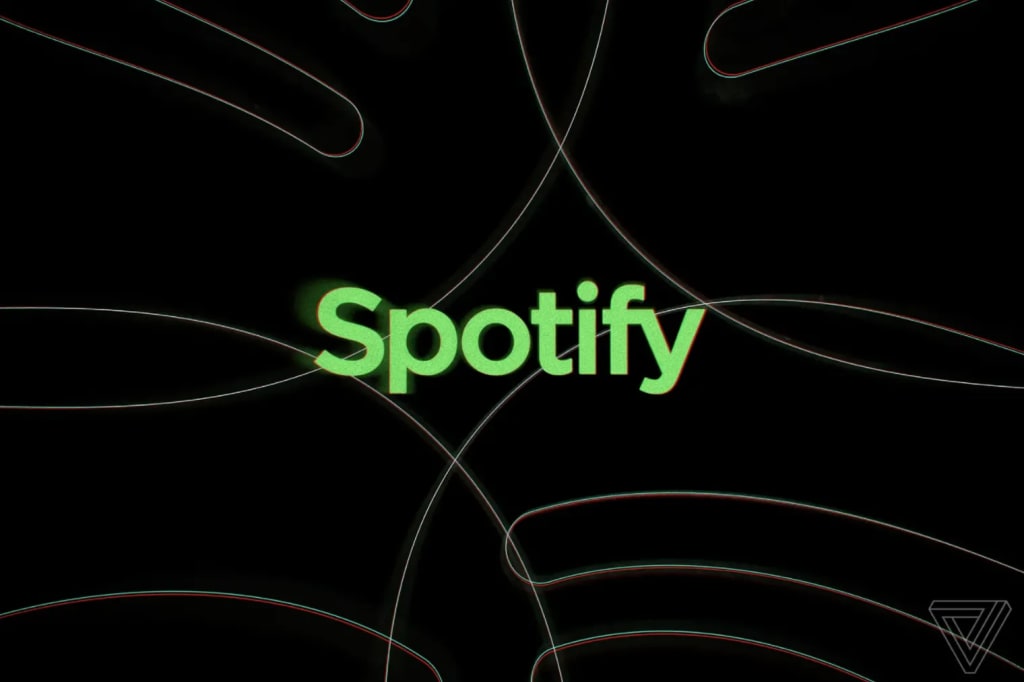A podcast discovery stream is being trialed by Spotify
Radio continues to make inroads into the world of podcasts.

Why podcasts pop up to cover Ukraine
For The Verge, an essay was written wanting to know why so much of the coverage of Ukraine is in the form of pop-up podcasts.
NPR, The Telegraph, independent teams, and others have invested resources in the format, despite the fact that the labor required to report and prepare a show is impossible to reduce to match the news cycle's dizzying speed.
Many of these teams have good reason to feel that this investment is worthwhile — and many of them have similar reasons. After all, many people have successfully launched new podcasts in the past, and some have even been able to reuse streams once they've ended to help fund future projects.
Spotify shuts down all services in Russia
Spotify has declared that it would cease service in Russia due to a new rule intended to suppress honest coverage of the country's invasion of Ukraine. The closure is expected to be completed by early April, according to Spotify.
“Unfortunately, recently enacted legislation further restricting access to information, eliminating free expression, and criminalizing certain types of news puts the safety of Spotify’s employees and possibly even our listeners at risk,” said a Spotify spokesperson, who asked not to be named because of the sensitivity of the situation.
Spotify has already banned paid access to its service in Russia, which resulted in the loss of around 1.5 million paying members. However, it has kept the larger service available until now in order to keep citizens' information flowing freely.
This is the latest measure taken by Spotify in reaction to the invasion, and it follows in the footsteps of other major digital giants such as YouTube and Apple. Spotify shut down its local offices in Russia in early March (a decision that might have long-term ramifications) and banned Russian state media outlets RT and Sputnik off the site.
Spotify tests a podcast discovery feed
A new feature has been introduced to the Spotify app: a podcast tab has been placed at the bottom of the screen. A Spotify spokesman said the business "doesn't have any more news to give at this time," adding that the company "routinely tests these types of changes – some of which remain around and some of which don't."

This tab is presently a relatively basic website aimed to introduce you to new series, rather than a place to corral your subscription shows or downloaded episodes. The interface allows you to swipe vertically among cards of various shows, with no indication of what will appear next. A snippet of an episode's audio begins to play when it is focused on the screen, and the website appears to propose a mix of episodes from programs you subscribe to and those you don't. Here's a screencast of hashtag inventor Chris Messina's interface, which he characterizes as "TikTok-style."
In terms of real discovery, the episodes that are presented are largely from programs that I now listen to, at least for me. Otherwise, they're ones that already reside in the Home tab's "Popular with Listeners of ____" section.
According to TechCrunch, the functionality appears to have arisen from Spotify's acquisition of Podz, a podcast discovery tool, for roughly $50 million last year.
This is a big step, one in line with Spotify's quest of podcast popularity, because Spotify doesn't have a TikTok-like counterpart for music discovery — and considering how valuable the real estate of the main navigation bar is — It's also a sneak peek at how real-time transcripts would appear on the site.
While the music is playing, dynamic transcripts appear on the screen, something Spotify hasn't yet made available across all programs — and which is presumably a glimpse of a more widespread functionality to come. Streaming businesses, on the other hand, have given us cause to expect subpar transcripts when they do exist, and this is no exception.
The caption "it is a little heated of watching it is" in the screenshot above is extracted from the audio of two speakers. It should read "That is a lot of viewing," as one person says it, and "It is," as the other person says it. Instead, it has a Yoda-like tone to it.
iHeart and Sirius venture further from radio
There are two additional podcast developments from firms that aren't known for podcasts: SiriusXM has launched its first podcast-specific streaming channel, while iHeartMedia has launched a new podcast firm. Both of these actions are in keeping with the firms' ongoing efforts to push back the boundaries of their radio reputations.
SiriusXM’s new channel, “Freakonomics Radio Network,” will broadcast both freshly published and archived episodes of the podcast Freakonomics Radio, similar to a podcast feed but mixed and... constantly on. Episodes from other Freakonomics podcasts, such as People I (Mostly) Admire and No Stupid Questions, will also be available on the channel. Other SiriusXM partnerships, on the other hand, include podcast hosts but also put them in control of whole new shows with more traditional live-radio formats.
With Collab, iHeartMedia embarks on its own recent non-radio venture, opening a new podcast studio called Curativity that's meant to be "creative-centric," starting with family-friendly content and overseen by an established creator. Kids Animal Stories and Kids Short Stories are the first two existing shows to be named to Curativity's network, with a third, the recently announced Spyology Squad, slated to air next week. Mr. Jim, the kids' audio personality, is responsible for all three. I don't know who Mr. Jim is, but those kids definitely do.
On Being to go independent
Krista Tippett stated that she and her long-running show On Being will be leaving public radio, moving to an independent format, and reducing her weekly schedule. The flexibility to keep a program, move it around, and edit it is similar to the independence that many public-radio staff have voiced a desire for; while this isn't a typical situation, it does serve as an example.
In a letter to stations that air On Being (almost 400 in total), Tippett wrote that public radio has been intrinsic to the show’s existence and growth ever since it started under a different name almost 20 years ago. “We will always understand ourselves as colleagues and family to you,” she wrote. “Indeed, we would love to find ways to partner with you and your communities through our work beyond this moment, and we will communicate about that with specificity later this year.”
Respect for radio notwithstanding, sometimes folks need to flex their creative muscles — or just take a break. “After hosting 52 weeks of programming a year for close to 20 years, I’m ready to move to a more sustainable rhythm and to open space and time for writing, public engagement, and new extensions of our content in the world that is emerging,” Tippett wrote. Heard that.






Comments
There are no comments for this story
Be the first to respond and start the conversation.